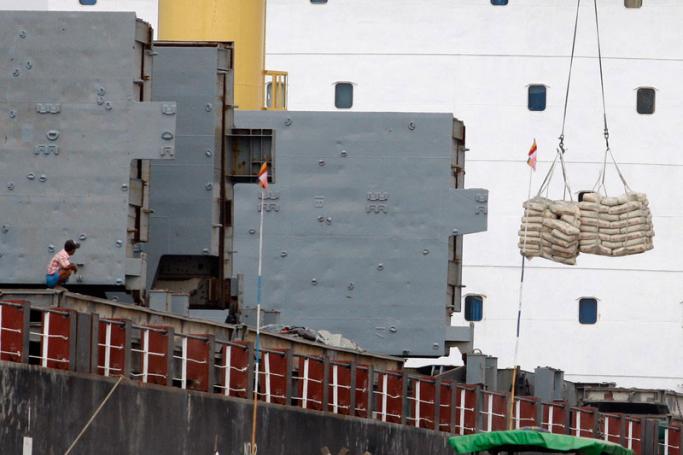Myanmar has risen out of the bottom 20 and is showing key improvements in five areas as it gets easier to do business in the country.
That is the assessment of the IFC, a member of the World Bank Group, which supports business regulatory reforms in Myanmar to make it easier to do business in the country.
An ambitious reform programme has helped Myanmar rise out of the bottom 20, putting the nation among the top-20 reformers alongside China, India, and Bangladesh, in the World Bank Group’s Doing Business 2020 ranking.
Over the past year, Myanmar introduced substantial improvements in five areas measured by Doing Business: starting a business, dealing with construction permits, registering property, protecting minority investors, and enforcing contracts. Moving up six positions from last year, Myanmar’s rank is 165 globally on the ease of doing business rankings, with a distance to the frontier score of 46.8 out of 100, up from 43.5 last year.
IFC is upbeat on the developments.
“Myanmar has made significant efforts in improving the business environment through the establishment and work of the Myanmar Doing Business Report Working Group (DBRWG), geared at driving and institutionalizing reform,” said Vivek Pathak, Regional Director for East Asia and the Pacific, IFC.
Highlights of Myanmar’s progress:
- Starting a business: Myanmar made starting a business easier by introducing an online platform for company registration and by reducing incorporation fees.
- Dealing with Construction Permits: Myanmar strengthened construction quality control by imposing stricter qualification requirements for architects and engineers and making building permitting requirements available online. Myanmar also improved its water and sanitation infrastructure and made the building permitting process more efficient by introducing service quality standards.
- Registering property: Myanmar made property registration faster by streamlining deed registration and appraisal. Myanmar also improved the quality of its land administration system by publishing the fee schedule, official service standards and statistics on property transfers for the previous calendar year.
- Protecting minority investors: Myanmar strengthened minority investor protections by requiring greater disclosure of transactions with interested parties, increasing director liability, and requiring greater corporate transparency.
- Enforcing contracts: Myanmar made enforcing contracts easier by publishing performance measurement reports.
Myanmar also made significant improvements in the process of construction permitting, which helped the economy improve its global ranking on this indicator (46). The country’s overall progress has been substantial, and yet there is room for further improvement in several areas, including enforcing contracts (187), getting credit (181), protecting minority investors (176), and resolving insolvency (164).
Moving forward, Myanmar’s pursuit of a better business environment will stimulate private sector growth, generate jobs, and subsequently drive economic growth. The World Bank Group continues to provide technical advice to DBRWG to support the country’s reform efforts.
IFC—a sister organization of the World Bank and member of the World Bank Group—is the largest global development institution focused on the private sector in emerging markets.
The IFC works with more than 2,000 businesses worldwide, using our capital, expertise, and influence to create markets and opportunities where they are needed most. In fiscal year 2019, they delivered more than $19 billion in long-term financing for developing countries, leveraging the power of the private sector to end extreme poverty and boost shared prosperity.












